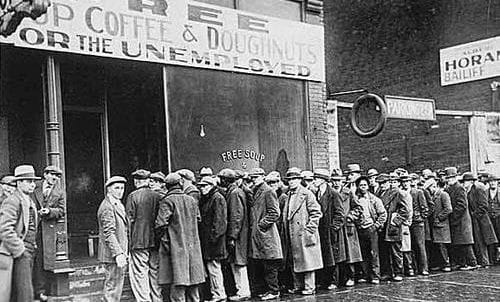Mitt Romney Job Creation Plan Assumes Economy is Growing Now


Mitt Romney has recently made a pledge to the American people that during the first term of his presidency, he has a concrete job creation plan that will produce 12 million new jobs. This would put a large dent in the unemployment rate and significantly boost the rate of recovery, assuming this is something that Governor Romney is capable of achieving. The claim is undoubtedly a response to critics claims that the Romney campaign has released very few specific details in regards to producing the economic growth that they claim President Obama has failed to facilitate.
Over the next four years, the economy would need to add approximately 250,000 jobs per month to achieve this goal. This is quite a jump from the current rate of economic growth which has added just 138,000 jobs per month since March of 2010; when the job market started to bounce back. The claim is a calculated risk, based on several factors, with the need to cast Mitt Romney as an expert on business.
This claim made by Romney also comes shortly after several independent firms have predicted that the economy will add 12 million jobs over the next four years, regardless of who ends up in the White House. Even if we use the numbers put forward by the Congressional Budget Office (that predicts 9.4 million jobs added over the next four years) the Romney campaign claims are still useful. First, it helps us understand some of the Mitt Romney campaign strategy. This isn't a promise that he would be willing to make unless it was one that he was fairly certain he was capable of keeping. Secondly, it tells us that the former Governor is not necessarily very confident in his ability to spur an economic recovery in the way that his voters are expecting. And finally, it gives us some insight into the idea that the economy is not victim to the whims of whoever occupies the White House.
To be clear, I do not mean to say that policymakers have no effect on the economy. Quite the contrary, policymakers are certainly capable of hurting economic growth, or creating an environment that is conducive to job creation. The point is that the President is often victim to broader economic trends and market tendencies. Knowing this means that campaign strategists need to work to present the numbers in such a way that is favorable to them, and damaging to their opponents. It is plain to see that while the economy is growing slowly, this will pick up in the coming years. Whichever party holds the White House for this cycle is poised to take credit for a upturn that they likely had very little to do with.
Aside from this essential fact, the total outcome of the next election is unlikely to swing in a manner that would allow Mitt Romney (or President Obama for that matter) to achieve everything that they want.
If Mitt Romney wins the election in November and the Republicans retain the majority in the House of Representatives, it is unlikely that the Democrats will lose the majority that they currently hold in the Senate. From a legislative standpoint, this will make it difficult for the new President Romney to pass budget measures and fiscal initiatives without compromise from the liberal side of the Senate. This would also make it nearly impossible for Romney to keep his campaign promise of repealing Obamacare, and it is likely that his plan for job creation would be very different from the one envisioned during his campaign.
In an alternate scenario, if Barack Obama retains the presidency, he is soon to find himself in the same partisan gridlock of the last 2 years. It is likely that the Republicans will retain the majority in the House of Representatives. If they gain seats in the Senate, it is incredibly unlikely that they will gain the veto-proof super majority that they would need to pass budget proposals without presidential approval.
This is an unfortunate example of how political candidates can manipulate numbers and take advantage of an uninformed public. There is no merit in attempting to take credit for the success of the fiscal policies that came from the previous administration, or economic growth that is occurring due to independent market trends. Perhaps the most important predictions regarding the next four years is that we can expect more of the same political grandstanding, partisan gridlock and general division that defined the last election cycle.


